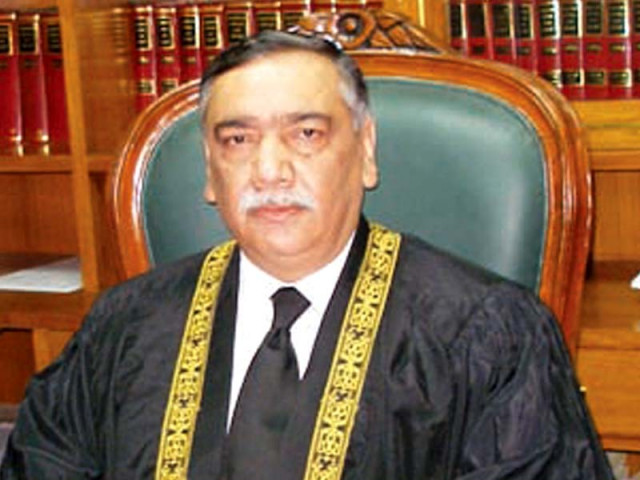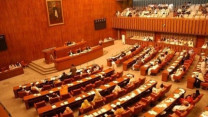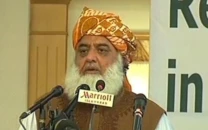COAS service terms unregulated by law so far, wonders CJP
'Howsoever high you may be, the law is above you'

Justice Asif Saeed Khosa. PHOTO: EXPRESS
“I understand that democratic maturity of our nation has reached a stage where this court can proclaim that, as declared by Chief Justice Sir Edward Coke of England in the Commendam case in the year 1616 regarding the powers of King James I, ‘Howsoever high you may be, the law is above you,’” writes the justice chief in his brief additional note on the Supreme Court detailed judgment.
The verdict was about deciding the question whether the top military post in the country, that of the chief of the army staff (COAS), the commanding officer of the Pakistan Army, is regulated by the Constitution and the law; and whether the COAS has a tenure or can seek an extension or has any terms of service under the law.
The chief justice, while agreeing with the main detailed judgment authored by Justice Syed Mansoor Ali Shah, adds that in our peculiar historical context the chief of the army staff holds a powerful position in ways more than one.
“Unbridled power or position, like unstructured discretion, is dangerous,” the chief justice says, adding that it has been a shocking revelation to us that the terms and conditions of service of the chief of the army staff, the tenure of his office, extension in the tenure of his office or his reappointment to that office have remained unregulated by any law so far.
“Clause (3) of Article 243 of the Constitution of the Islamic Republic of Pakistan, 1973 mandates that the president’s power to raise and maintain the armed forces is to be “subject to law” and, thus, leaving some vital aspects relevant to the office of chief of the army staff without being regulated by any law militates against the said express provision of the Constitution,” says Justice Khosa.
The chief justice, who is retiring on Dec 20, further writes, “In the backdrop of the last three scores and twelve years of our history I may observe with hope and optimism that framing of a law by the parliament regulating the terms and conditions of the office of chief of the army staff may go a long way in rectifying multiple historical wrongs and in asserting sovereign authority of the chosen representatives of the people besides making exercise of judicial power of the courts all pervasive.”



















COMMENTS
Comments are moderated and generally will be posted if they are on-topic and not abusive.
For more information, please see our Comments FAQ